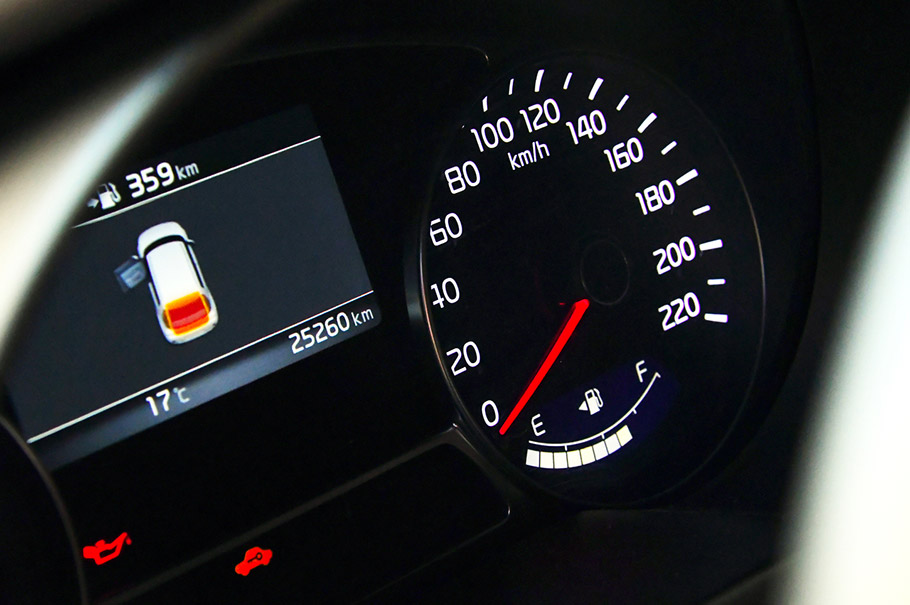The EU Has Mandated Speed Limiters by 2022, but Insurance Companies are Worried
 The EU has mandated speed limiting technology in every new vehicle by the year 2022, but not everyone is on board. Supporters of this technology praise its ability to save lives with its automated speed limiting and GPS capability, but critics are bringing up the fact that speed limiters haven't been tested enough and that it is an overreach of the EU to require the technology in every new car. New automobile tech pops up by the day, automated vehicles will dominate the roads sooner than you think.
The EU has mandated speed limiting technology in every new vehicle by the year 2022, but not everyone is on board. Supporters of this technology praise its ability to save lives with its automated speed limiting and GPS capability, but critics are bringing up the fact that speed limiters haven't been tested enough and that it is an overreach of the EU to require the technology in every new car. New automobile tech pops up by the day, automated vehicles will dominate the roads sooner than you think.
The EU Mandate
This year the European Commission voted on whether to require speed limiters in new cars by 2022. The Intelligent Speed Assistance (ISA) limiter was passed the Commission and green-lit for legislation that approves the mandate. While some see this as an overreach of power, others are praising the EU for making decisions to mitigate deaths on the road. The statistics show that up to 25,000 lives will be saved in the first 15 years. There is also an estimated reduction of traffic collisions by 30 percent.
How it Works
Each new car will have an automated speed limiter that is set to the speed limit. It is also equipped with GPS that knows where each car is, their speed, and what traffic conditions are like. The European Transport Safety Council (ETSC) acknowledged the risks of the technology, they have called for an on//off switch that will allow drivers to disable the speed limiters which can be overridden by pressing hard on the accelerator. Still some critics are saying that the technology hasn't been tested enough and that it may be slow to respond in low speed areas. For example, in a school area cars need to stop suddenly for children or speed up quickly to avoid danger.
Additional safety measures include an autonomous emergency brake, lane assist, driver fatigue detection, data loggers, and reverse cameras. They also have the capability to be fitted to in-car breathalyzers for those who have been convicted of a DUI.
ISA works with cameras and traffic-sign recognition are installed in order to detect the appropriate speed limit for the road by utilizing GPS data. The cameras are used to detect when it is necessary to adjust the speed. Tesla already has this technology on the road although the US has not mandated speed limiters.
There will be warnings to reduce speed when they are breaking the law or going too fast for current conditions. The ISA does not apply the brakes, but alerts will be given at or below the speed limit. Instead they limit engine power and prevent the automobile from accelerating. But this can be overridden by pushing hard on the accelerator.
Insurance Companies
Insurance companies are skeptical that the technology won't have kinks, but they have every reason to doubt it. If it works successfully, car insurers will lose out on a lot of money. According to MoneyPug, a site commonly used to find the best car insurance, the biggest concern of insurance companies is that there is a gap between the ISA system and the driver pushing on the gas should they need to escape danger. The AA has said that the ISA technology is not so black and white. They say that speed limiters could inhibit the driver's natural instincts that prevent accidents.
Overall insurance companies reference that the technology hasn't been tested enough to be mandated. Although there are a few years before it will be mandated in Europe, there are still concerns that ISA may drive at the speed limit when it is advantageous to go slower or faster. Once the kinks in the technology are smoothed out, it will likely save thousands of lives, but it remains to be seen whether or not it will work perfectly right out of the gate.
However you look at the speed limiting technology, there is no stopping it. It is not our choice whether to use this technology or not, it is already a reality, but it is our choice whether or not to mandate it and require the technology in ever car. The future of automobiles is exciting, but it will still take a while to transition into the new, safer roads.










